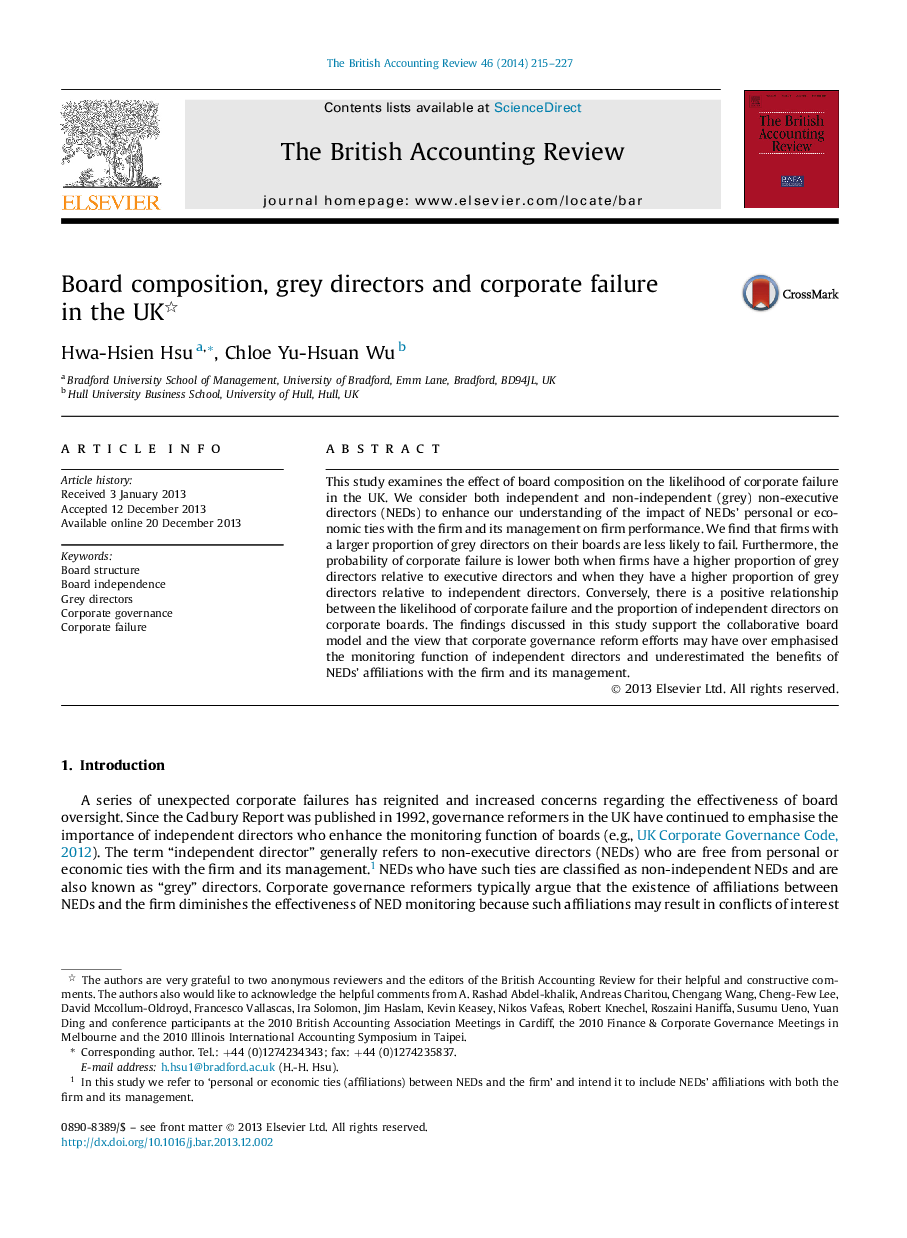| Article ID | Journal | Published Year | Pages | File Type |
|---|---|---|---|---|
| 1003956 | The British Accounting Review | 2014 | 13 Pages |
This study examines the effect of board composition on the likelihood of corporate failure in the UK. We consider both independent and non-independent (grey) non-executive directors (NEDs) to enhance our understanding of the impact of NEDs' personal or economic ties with the firm and its management on firm performance. We find that firms with a larger proportion of grey directors on their boards are less likely to fail. Furthermore, the probability of corporate failure is lower both when firms have a higher proportion of grey directors relative to executive directors and when they have a higher proportion of grey directors relative to independent directors. Conversely, there is a positive relationship between the likelihood of corporate failure and the proportion of independent directors on corporate boards. The findings discussed in this study support the collaborative board model and the view that corporate governance reform efforts may have over emphasised the monitoring function of independent directors and underestimated the benefits of NEDs' affiliations with the firm and its management.
